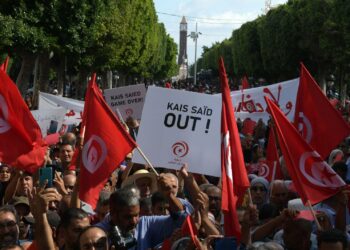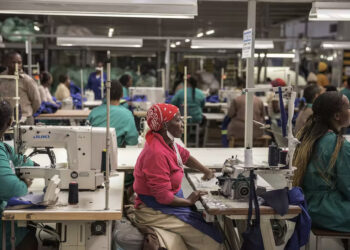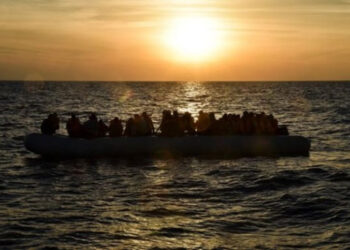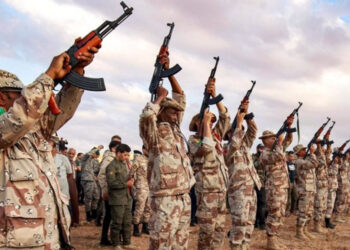The Berbers are descendants of pre-Arab populations across North Africa, from the extreme west of Egypt to the countries of the Maghreb.
The Berbers, who refer to themselves as the Amazigh meaning “free man”, have long fought for greater recognition for their ancient ethnic group, their culture and language.
Here is some background on Berber communities that have stretched across North Africa since long before the Arab conquests:
Morocco
On Africa’s northwestern tip, Morocco is home to the largest Berber community in the region.
Their language — of which there are three main dialects — was only given official status alongside Arabic in a new constitution in 2011.
One of the major consequences of this recognition has been the appearance of their Tifinagh alphabet on public buildings next to Arabic and French.
Since 2010 the Tamazight TV channel has been dedicated to promoting Berber culture.
Some years ago lawmakers created a major stir by talking in the Berber language in parliamentary sessions.
Despite advances, the Moroccan authorities still sporadically refuse to register Berber names on the official registry.
The Amazigh flag was a major symbol in protests that hit the depressed Rif region in the north of the country in 2016, where the group is a majority.
Algeria
The Berber comprise about 10 million people in Algeria, making up roughly a quarter of the country’s total population of 40 million.
They live mainly in the mountainous northern region of Kabylie, and as in Morocco they have led a long fight for their rights.
After some progress, such as the recognition of Tamazight as the country’s second official language in 2016, the Berber was the target of much repression in the crackdown on anti-government protests.
Several dozen demonstrators were sentenced to jail for having brandished the Amazigh flag, banned from rallies by the army.
Libya
Persecuted under dictator Moamer Kadhafi, who denied their existence, the Berbers of Libya have called for their language to be given official status alongside Arabic and for greater political representation.
They make up around 10 percent of the 6.4 million and live mainly in the mountains west of Tripoli or in the vast southern desert regions.
Their demands have become more vocal in the turmoil-wracked country since Kadhafi’s ouster and death in 2011. The Berber flag can now be seen on administrative buildings.
Textbooks in their language have also been produced, but they have not been officially approved by the internationally-backed government.
Under a draft constitution endorsed by parliament, but still awaiting ratification, the languages spoken by the various communities, including Tamazigh, are recognized as part of Libyan cultural heritage but not given official status.
Tunisia
In Tunisia, estimating the number of Berbers is tough as official statistics based on ethnicity are prohibited.
Outside their traditional heartland in the south, Berbers are mainly found in the capital Tunis following an exodus from the countryside.
They complain of marginalization and exclusion in a state that recognizes only Arabic in its constitution.
Jallol Ghaki, the head of the Tunisian Association of Amazigh Culture, estimates that while some half of Tunisians may be of Berber origin, the vast majority have been fully Arabised and only one percent speak the local Chelha dialect.
While activists complain that the state takes no efforts to preserve or educate children about Berber culture, there have been some improvements since Tunisia’s 2011 revolution.























